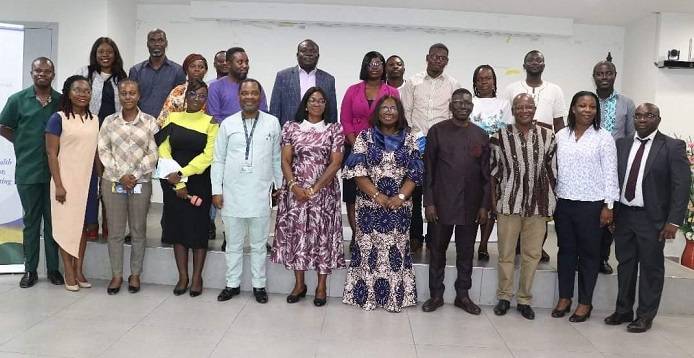
A three-year project that seeks to prioritise government’s investment into the fight against non-communicable diseases (NCDs) surge in the country, was launched in Accra yesterday.
The “Support to Evidence-informed Priority Setting” (StEPS) Ghana project would see to prudent health resource management through priority setting, such that there is efficiency, equity and financial risk protection in reducing the disease burden.
It is being spearheaded by the Ministry of Health in collaboration with the University of Ghana, School of Public Health and the Bergen Centre for Ethics and Priority Setting in Health of the University of Bergen in Norway.
The sector minister, Kwaku Agyeman-Manu in a speech read on his behalf at the launch of the project, said the goal of the project was to navigate the complexities of NCDs, identify the most effective interventions, and allocate resources judiciously.
The initiative, according to him, was crucial in reducing the burden of NCDs on Ghana’s healthcare system and the society as a whole.
Key amongst the goals of the project, Mr Agyeman-Manu, noted was to raise awareness on lifestyle factors that increased the risk of NCDs among the populace.
“Lifestyle modification is a cornerstone of NCD management and the StEPS project underscores the importance of raising awareness about the dangers of these behaviours and providing support for individuals seeking to quit.”
The minister indicated that the success of the StEPS project was based on the power of collaboration and multi-stakeholder engagement and therefore called on healthcare professionals, policymakers, researchers, civil society organisations, and community leaders to rally behind the initiative.
He further encouraged members of the steering committee and Technical Working Group of the StEPS secretariat to provide leadership to ensure effective implementation to achieve the targets set out in their terms of reference.
Professor Lumbwe Chola, the StEPS Project Coordinator-Norway, in an address said the project would define and develop capacity in health economics and priority setting related to NCDs in Ghana.
He said that the expected outcomes of the project was to train experts in health economics and priority setting to strengthen capacity of the ministry to effectively manage health sector issues.
Dr Mrs Martha Gyansa-Lutterodt, the Director of Technical Coordination at the Ministry said, the burden of NCDs in Ghana required a comprehensive and targeted approach and by addressing risk factors, for the country to effectively reduce the impact of NCDs and enhance the overall health and wellbeing of its population.
BY ABIGAIL ANNOH







